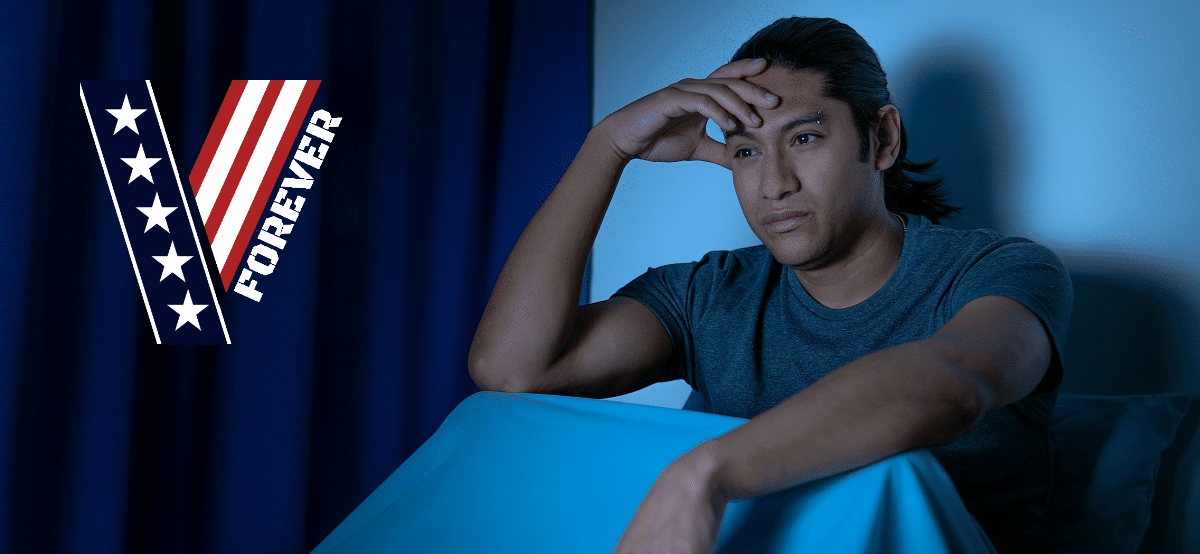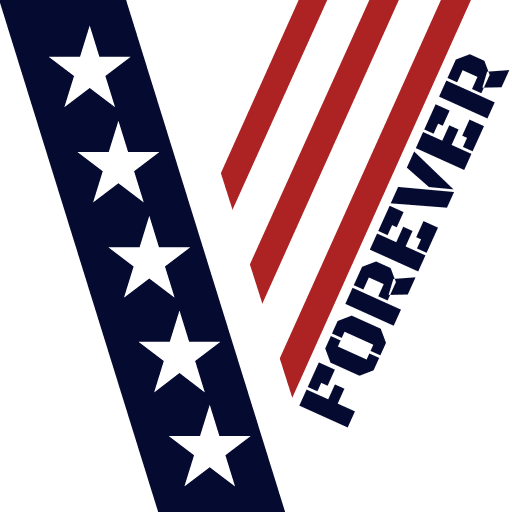
Insomnia is one of the most common sleep disorders affecting veterans today, and for many, it stems from service-related experiences. Veterans who experience insomnia as a result of their time in the military may be entitled to a VA disability.
The process of filing a Insomnia VA Rating, determining the appropriate rating, and understanding the symptoms of insomnia can be complex.
We’ll cover everything veterans need to know about how to get a VA rating for insomnia, including how the rating is determined, tips for filing a claim, and why working with a VA-accredited law group like VetsForever can make a significant difference in your claim’s success.
What Is Insomnia?
Insomnia is a sleep disorder characterized by difficulty falling asleep, staying asleep, or achieving restful sleep. Veterans may experience both acute (short-term) or chronic (long-term) insomnia. Chronic insomnia, which lasts for three months or longer, can severely affect a veteran’s physical and mental well-being. Insomnia may manifest as:
- Difficulty falling asleep
- Waking up during the night and having trouble falling back asleep are common issues associated with insomnia, which can influence a veteran’s VA disability.
- Waking up too early
- Feeling tired even after a night’s sleep
- Irritability, depression, or anxiety due to lack of sleep
- Difficulty concentrating and remembering things can be a symptom of insomnia, potentially affecting a veteran’s VA disability rating.
For veterans, insomnia can often be linked to service-related injuries as a secondary condition such as mental health conditions like PTSD (Post-Traumatic Stress Disorder), or even medication side effects.
It’s important to know that the VA recognizes insomnia as a legitimate condition for disability compensation if it can be shown that it is related to military service.
How the VA Rates Insomnia
The VA does not have a specific rating for insomnia by itself. Instead, the VA classifies insomnia under mental health disorders and sleep disturbances. The most common way veterans receive compensation for insomnia is through insomnia as a secondary connection to another condition such as PTSD, anxiety, or depression.
These conditions are rated under the VA’s Schedule of Rating for Mental Disorders, found in the Code of Federal Regulations (CFR), Title 38.
Here’s a breakdown of the general rating formula for mental health criteria the VA uses, which can apply to insomnia when it’s connected to a mental health condition:
- 0% Rating: Symptoms are present, but they do not interfere with work or social functioning.
- 10% Rating: The veteran experiences mild symptoms that reduce their efficiency but only during periods of stress, which may affect their overall disability.
- 30% Rating : The veteran experiences occasional decreases in work efficiency and intermittent periods of inability to perform occupational tasks.
- 50% Rating : The veteran shows reduced reliability and productivity due to symptoms like panic attacks, memory loss, or difficulty maintaining effective work and social relationships.
- 70% Rating : The veteran has deficiencies in most areas, including work, school, family relations, judgment, thinking, or mood.
- 100% Rating : The veteran experiences total disability with occupational and social impairment due to insomnia symptoms like persistent hallucinations, delusions, or grossly inappropriate behavior.
For veterans who do not have a diagnosed mental health disorder linked to their insomnia but still experience service-connected sleep issues, the VA may rate insomnia under Sleep Apnea (Diagnostic Code 6847) , which is a sleep disorder often co-occurring with insomnia.
Steps to File a VA Claim for Insomnia
Filing a VA claim for insomnia requires gathering the appropriate evidence and establishing a clear service connection.
Here’s a step-by-step guide to help veterans navigate the claims process:
1. Establish a Diagnosis
Before the VA will award disability compensation, you must have a formal diagnosis of insomnia. This can come from a VA medical professional or a private healthcare provider. Without a diagnosis, the VA will not consider your claim.
2. Demonstrate Service Connection
Once you have a diagnosis, you need to demonstrate that your insomnia is connected to your military service. There are three primary ways to establish service connection:
– Direct Service Connection : You can show that your insomnia began during your military service or was caused by something that happened during your service (such as exposure to traumatic events).
– Secondary Service Connection : You can link your insomnia to another service-connected disability. For instance, if you are already service-connected for PTSD or depression, and your insomnia is a symptom of that condition, the VA may award a secondary service connection for insomnia, potentially impacting your overall VA disability rating.
– Presumptive Service Connection for VA disability benefits related to insomnia. : Certain conditions are presumed to be service-connected if they manifest within a certain period after discharge. While insomnia is not typically included as a presumptive condition, if it’s linked to conditions like physical conditions that causes chronic pain, Gulf War Syndrome, or toxic exposure, it may still qualify.
3. Gather Supporting Evidence
To strengthen your VA claim for insomnia, you’ll need to provide sufficient evidence. The evidence can include:
– Service Treatment Records : These records may show that you reported sleep issues while in service.
– VA Medical Records or Private Medical Records : These should document your insomnia diagnosis and its connection to your service or another service-connected disability.
– Lay Statements : Statements from family members, friends, or coworkers who have witnessed how insomnia affects your daily life can help substantiate your claim.
– Buddy Statements : Statements from fellow service members who can testify to events or circumstances in your service that may have led to insomnia.
4. Submit Your VA Claim
Once you’ve gathered all necessary documents, you can submit your VA disability claim through one of several methods:
- Online via the VA’s va.gov portal
- By mail using VA Form 21-526EZ to apply for VA disability benefits for insomnia.
- In person and speak with a VA representative at a VA regional office
- With the help of an accredited VA attorney, such as VetsForever
After you submit your claim, the VA will review your evidence and may schedule a Compensation & Pension (C&P) exam to evaluate your symptoms and their impact on your life.
Common Challenges with Insomnia VA Rating Claims
VA insomnia claims can be challenging to navigate due to a few key reasons:
– No Standalone Rating : Since the VA does not have a specific insomnia rating alone, it’s essential to connect insomnia to another condition, such as a mental health disorder or sleep apnea. Failure to establish this connection could result in a denial.
– Lack of Medical Evidence : Many veterans struggle to provide enough medical evidence to prove their insomnia is service-connected. Medical records, lay statements, and a strong nexus letter from a medical professional can help overcome this challenge.
– C&P Exam Difficulties : Some veterans find that their Compensation & Pension (C&P) exam results do not fully capture the severity of their insomnia symptoms, impacting their VA disability. If you believe your C&P exam was inadequate, it’s important to appeal the VA’s decision.
Insomnia and Its Connection to PTSD and Other Conditions
Insomnia often coexists with other mental health conditions such as anxiety, and depression. Veterans who experience insomnia as a symptom of PTSD, for example, may qualify for a higher VA rating depending on how severe their symptoms are and how they affect their ability to function.
– PTSD and Insomnia : Veterans with PTSD often suffer from hyperarousal, nightmares, and difficulty falling asleep. This can lead to chronic insomnia, making it difficult for veterans to function during the day.
– Anxiety and Depression : Both of these conditions can cause insomnia, especially if the veteran experiences racing thoughts or overwhelming feelings of worry. Veterans with service-connected anxiety or depression can often link their insomnia to these conditions for a secondary service connection.
– Traumatic Brain Injury (TBI) : Veterans who have experienced a TBI may also develop insomnia as a result of neurological damage. If this is the case, the VA may award compensation for insomnia as part of a larger TBI claim.
How the VA’s “Benefit of the Doubt” Rule Can Help Veterans
Veterans may encounter difficulties providing enough evidence to substantiate their insomnia claims. Fortunately, the VA operates under the “benefit of the doubt” rule, meaning that if the evidence for and against your claim is equal, the VA will resolve the issue in favor of the veteran.
This rule can be helpful when there’s enough credible evidence to suggest that your insomnia is service-related, even if your records are not perfectly clear.
Why Working with an VA Disability Lawyer is Important
Navigating the VA claims process for insomnia can be difficult, but veterans do not have to go through it alone when seeking service connection for insomnia.
Working with a VA-accredited law group like VetsForever can provide veterans with the guidance and expertise they need to file a successful VA disability compensation claim.
VA-accredited attorneys understand the nuances of VA law, know how to gather compelling evidence, and can help veterans appeal denials when necessary.
Here’s why working with an accredited law group can be advantageous:
– In-Depth Knowledge : VA-accredited attorneys have extensive knowledge of VA disability law and know how to navigate the complex rules and regulations that apply to claims like insomnia and the associated ratings for mental disorders.
– Evidence Collection : These legal experts can help veterans collect the necessary evidence to substantiate their claims, such as obtaining medical opinions, buddy statements, and other crucial documentation.
– Appeals Expertise : If your initial claim for VA disability benefits is denied or you receive a lower rating than expected, an experienced attorney can help you file an appeal and represent you throughout the process.
– No Out-of-Pocket Costs : VA-accredited attorneys typically work on a contingency basis, meaning veterans don’t have to pay unless their claim is successful.
Conclusion
For veterans who suffer from insomnia, obtaining VA disability rating for insomnia can be life-changing. While the process may seem complicated, understanding how the VA rates insomnia, gathering the necessary evidence, and filing a well-supported claim can significantly increase the chances of success.
Working with a VA-accredited law group like VetsForever can also provide the guidance and support needed to navigate the VA benefits process smoothly, ensuring veterans get the benefits they deserve.
If you or a loved one is dealing with service-connected insomnia, reach out to VetsForever for expert assistance with your VA disability claim.
Frequently Asked Questions (FAQs)
1. Can I file a VA disability for insomnia if I have not been officially diagnosed with a sleep disorder?
Yes, you can file an insomnia claim even if you do not have an official diagnosis of a sleep disorder. However, having a formal diagnosis is highly recommended, as it strengthens your direct service connection for insomnia claim.
You will need to show that your signs and symptoms of insomnia is related to your military service or another service-connected condition.
2. How can I prove that my insomnia is connected to my military service?
To prove that your insomnia is connected to your military service, you need to provide evidence such as service treatment records, medical records showing the onset of insomnia, and lay statements from people who have observed how insomnia affects your daily life.
Additionally, if your insomnia is a symptom of another service-connected condition like mental health, you should include evidence linking the two. Thus linking insomnia as a secondary condition.
3. What should I do if my Compensation & Pension (C&P) exam did not accurately reflect the severity of my insomnia?
If you believe your C&P exam did not accurately reflect the severity of your insomnia, you should request a reevaluation or an independent medical opinion.
Document any discrepancies and provide additional evidence that supports your claim. You can also appeal the VA’s decision if needed. Be sure you know the rating schedule for insomnia.
4. How does the “benefit of the doubt” rule apply to my insomnia claim?
The “benefit of the doubt” rule means that if there is an equal amount of evidence for and against your claim, the VA will decide in favor of the veteran. This rule can help if you have credible evidence suggesting your insomnia is service-related, even if your records are not perfectly clear.
Insomnia is a common symptom so you may be eligible for VA compensation.
5. Can VetsForever help me with my insomnia claim?
Yes, VetsForever can help you with your insomnia claim. As a VA-accredited law group, VetsForever has the expertise to guide you through the claims process, help gather necessary evidence, and represent you in appeals if your claim is denied or if you receive a lower rating than expected.
They work on a contingency basis, so you only pay if your claim is successful.

